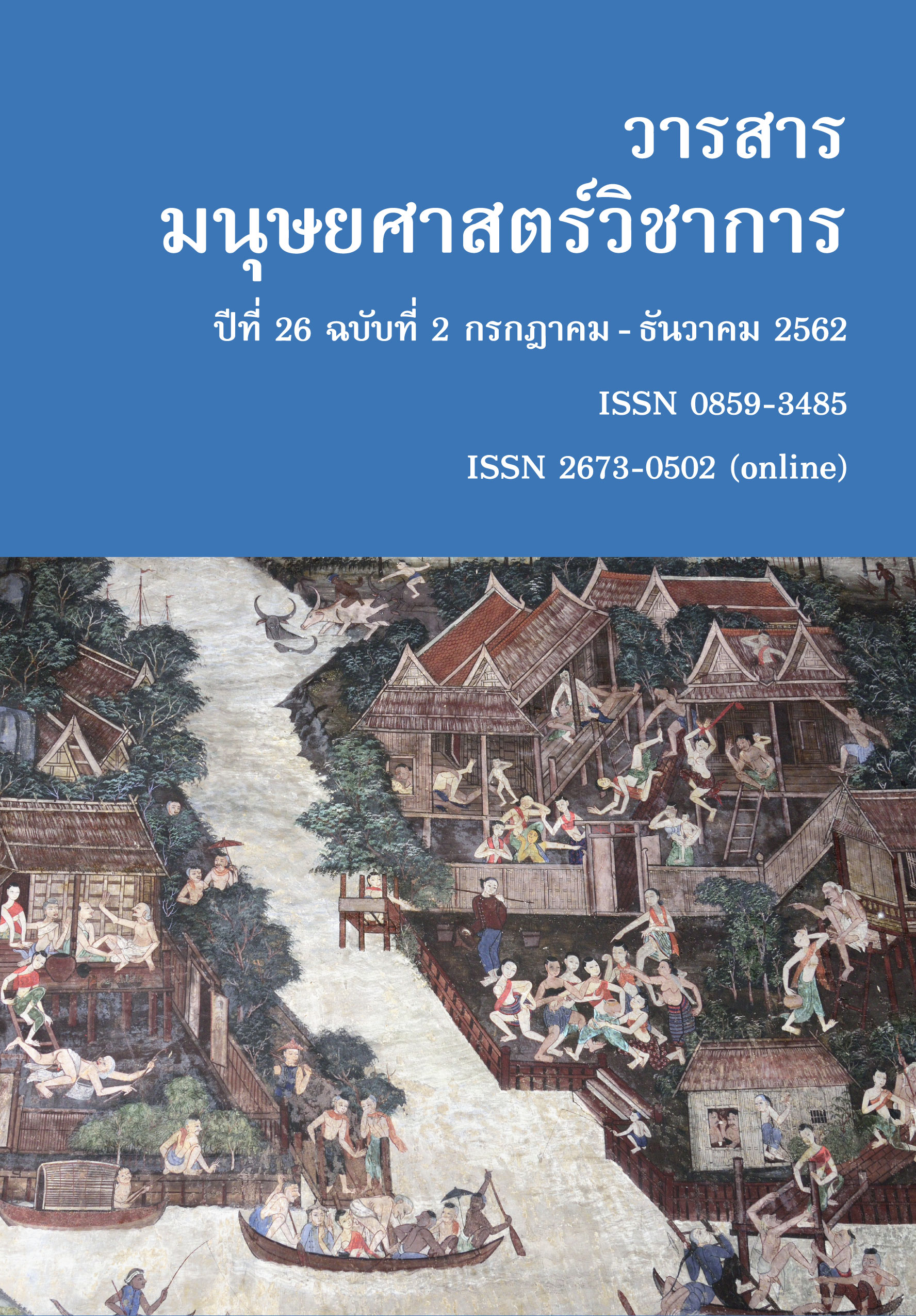Social Media and the Transformation of the Controversial Thai Child Angel Dolls
Main Article Content
Abstract
This paper examines and discusses the cultural and popular phenomenon of Luuk Thep or child angel dolls in Thailand. The fascination with these dolls, considered supernatural by many Thai people, generated controversy. It captured national attention between 2015 and 2017, with local superstitions and beliefs contributing significantly to the interest in the angel dolls. However, it was social media that stimulated the taste and intensified the desire for Luuk Thep to a frenzy in a brief period of a few months. This study covers a short history of how the craze developed. It also offers analyses with reference to relevant literature on the subject and demonstrates the role of social media in transforming the esoteric obsession with the dolls into a nation-wide preoccupation. A study is made of the power and influence of social media and its dynamic function in promoting the child angel dolls in the popular culture and imagination of contemporary Thai society.
Article Details
References
Chotidilok, S. and Runra, P. (2017, January 15). Goddess Dolls: The Reproduction of the Discourse “If You Don’t Believe It, Don’t Disrespect It” and the Functions of Modern Sacred Objects in Thai Society. Journal of Humanities and Social Sciences, Suratthani Rajabhat University, 9(1), pp. 149-172.
Guantlett, D. (2008). Media, Gender and Identity. Oxon: Routledge.
Head, J. (2016, February 11). Thailand’s Love of the Supernatural. BBC. Retrieved January 6, 2019 from https://www.bbc.com/news/world-asia-35529822.
Hodkinson, P. (2011). Media, Culture and Society: An Introduction. London: Sage.
Kunhalung, R. (2014). Communication about Kumanthong Sacredness in Thai Society. (Ph.D. in Communication Arts). Chulalongkorn University, Bangkok.
Parinyaporn, S. (2016). Superstitions Regarding Animals: Mutation and Reincarnation in a Thai Context. GAI International Academic Conferences Proceedings. (pp. 24-27). Amsterdam; Global Academic Institue.
Post Reporters. (2016, January 27). CAAT Curbs ‘Angel Child’ Tickets. Bangkok Post. Retrieved December 20, 2018 from https://www.bangkokpost.com/news/security/840432/caat-curbs-angel-child-tickets.
Tanakasempipat, P. and Kittisilpa, J. (2016, January 27). Thais Turn to ‘Child Angel’ Dolls as Economy Struggles. Reuters. Retrieved December 10, 2018 from https://www.reuters.com/article/us-thailand-dolls/thais-turn-to-child-angel-dolls-as-economy-struggles-idUSKCNOV5011.
Walker, R. (2005, February 20). The Way We Live Now: Consumed: Hyperreality Hobbying. New York Times Company. Retrieved December 17, 2018 from https://www.nytimes.com/2005/02/20/magazine/hyperreality-hobying.html.
Wong, K. (2004). Nang Nak, the Cult and the Myth of a Popular Ghost in Thailand, in Siraporn Nathalang (ed.) Thai Folklore: Insights into Thai Culture, Bangkok: Chulalongkorn University Press.
XP Staff. (2016, January 28). Is This the Doll of Destiny? The Nation. Retrieved December 15, 2018 from http://www.nationmultimedia.co/life/Is-this-the-Doll-of-destiny-30277898-html.
Zajc, M. (2015, March 1). Social Media, Prosumption, and Dispositives:
New Mechanism of the Construction of Subjectivity. Journal of Consumer Culture. Retrieved August 12, 2019 from https://doi.org/10.1177/1469540513493201.


